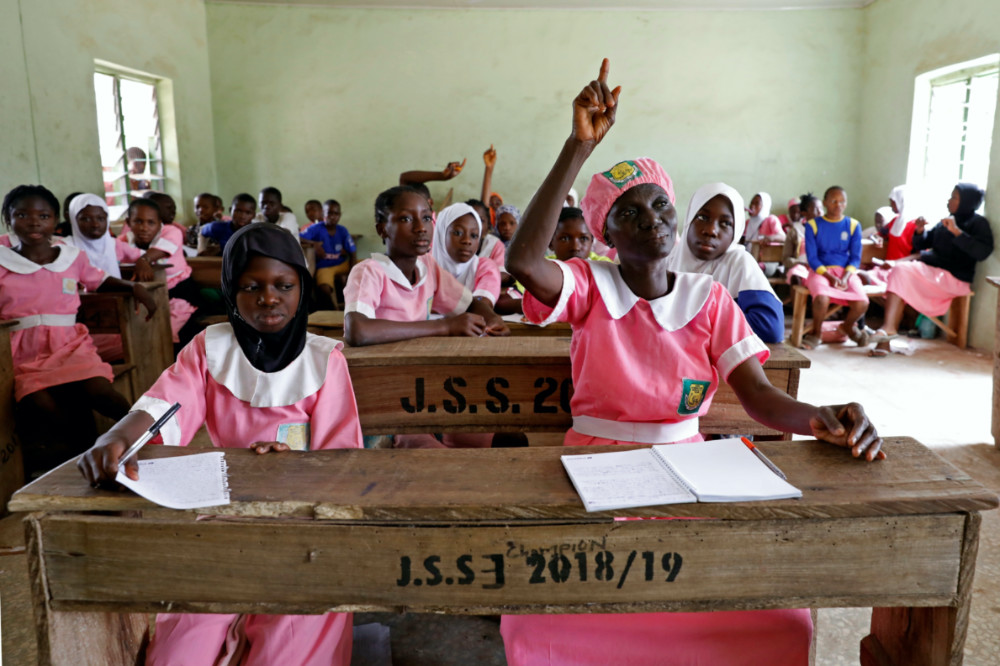Addis Ababa, Ethiopia
Thomson Reuters Foundation
From free school meals to decent work for adults, African officials are working to bring child labourers who dropped out of school due to COVID-19 back into the classroom to avoid a lost generation and meet a pledge to end child labour by 2025.
With school closures, income losses, deepening poverty and limited social services, children across the continent have been forced into work – in gold mines in Mali, cocoa farms in Ivory Coast and hawking on the streets of Uganda.

Shade Ajayi, 50, raises her hand to answer a question during class at Ilorin Grammar School in Ilorin, Kwara state, Nigeria on 25th March, 2021. PICTURE: Reuters/Temilade Adelaja/File photo.
“It’s very important…to ensure that we don’t lose a generation,” Cynthia Samuel-Olonjuwon, the International Labour Organization’s regional director for Africa, told the Thomson Reuters Foundation in an interview.
“If we don’t look after them, if we don’t equip them, if we don’t skill them up and prepare them, then they’re not going to be useful in the labour market,” said Samuel-Olonjuwon, who is also the ILO’s Assistant Director-General.
The number of child labourers worldwide has dropped significantly to 152 million children from 246 million in 2000, but the United Nations fears the COVID-19 pandemic is set to reverse these gains.
With one in five children working, Africa is the region most affected by underage labour and home to almost half of the world’s child labourers, some 72 million children.
The UN has made 2021 the International Year for the Elimination of Child Labour, saying urgent action was needed to meet a goal of ending the practice by 2025.
Many children labourers will need support to return to class, such as night schools, social assistance and free school meals, said African Union Commissioner Amira El Fadil.
“School-feeding programs address this issue of child labour indirectly,” said El Fadil, whose work focuses on health, humanitarian affairs and social development.
“In some countries, they don’t only take the food to the children in the school, they take the food to the families,” she said, adding that such programmes have proven successful in tackling child labour in Africa in the past.
Providing more decent work for adults is also a top priority to stem child labour in Africa, where approximately 85 per cent of employment is in the informal economy, said the ILO’s Samuel-Olonjuwon.
About 85 per cent of Africa’s child labourers work in agriculture, largely on family farms, according to the African Union’s 10-year plan to eradicate child labour, adopted last year.
Children are often taught to work at home and on the farm to learn responsibility – but this positive goal of socialising young people can sometimes lead to exploitation, child rights experts say.
“Over the last 20 years…a lot of work has been done to make member states in Africa recognise that child labour is a problem and that there’s a difference between child labour and socialisation,” Samuel-Olonjuwon said.
“I’m so pleased that things have moved from that, but it hasn’t moved fast enough. And I’m hoping that the fact that we know that we have only four years until 2025 will really propel us to take action.”






